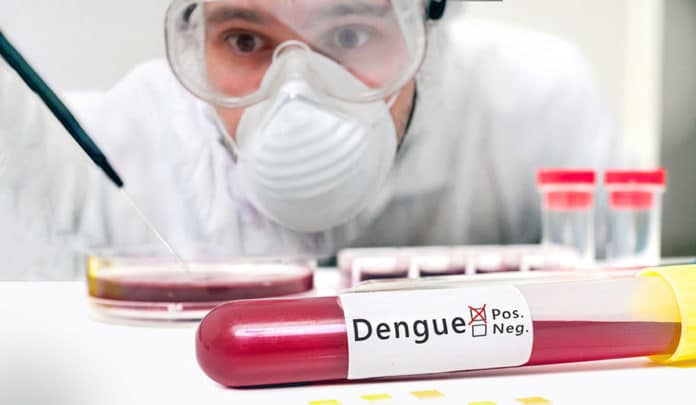Disease severity and outcome result from individual differences that define immune status and contribute to responses to infection.
A study based on blood samples from patients from India with dengue infection has found that an underlying virus does not stop the body’s immune system from launching a strong defense against a second.
For the study, patients with dengue virus infection were classified based on WHO clinical criteria as dengue fever. The blood samples were gathered from patients from India with dengue infection, working in partnership with investigators from The National Institute of Mental Health and Neurosciences in India and their colleagues at Apollo Hospital in Bangalore.
Scientists then infected the blood samples with the Zika virus and measured the cells’ immune response using advanced cell-profiling technology. They discovered that underlying dengue infection didn’t stop the immune system from launching a robust immune response against the newly introduced Zika virus.
Notably, there was an increment in small proteins called cytokines, which are related to fighting off infection in 36 individual cell subsets when Zika was introduced.
Ruth Montgomery, professor of medicine and epidemiology and associate dean for scientific affairs, said, “The message from our paper is that your innate immune system is ready to launch a potent response to a new pathogen.”
“Patients with acute dengue still had a strong immune response to the Zika virus. Their immune response was not diminished.”
Both dengue and zika virus is mosquito-borne human pathogens that have caused significant public health concern across the globe. There are some 50-100 million estimated dengue infections, leading to fever, headaches, joint pain, and more severe shock syndrome; the Zika virus has been shown to be devastating to babies in utero and has led to over 6,700 cases of deformities and neurological damage in newborns.
The study highlights a much more in-depth look at the body’s response to viruses at the single-cell level, which Montgomery noted are consistent with existing literature.
Scientists, later on, measured immune response using mass cytometry or CyTOF (Cytometry by Time-of-Flight), a state-of-the-art method for simultaneously revealing multiple components of the responses of distinct immune cell populations. Further analysis was fone using SAUCIE, a novel deep-learning algorithm.
The study is further expected to guide scientists in better comprehension of all emerging infectious diseases, including coronavirus, something Montgomery’s lab is now actively investigating.
Montgomery said, “We are set up to investigate human immune cell response to viruses and have several collaborations currently underway to collect samples related to the coronavirus. We have containment facilities and excellent virologists at Yale, and there is a lot of activity right now.”
Other co-authors of the study include Yujiao Zhao, postdoctoral associate; Matthew Amodio, graduate student; Brent Vander Wyk, biostatistician; Bram Gerritsen, postdoctoral associate; David van Dijk, assistant professor; Xiaomei Wang, research associate; Megan E. Cahill, postdoctoral associate; Erol Fikrig, the Waldemar Von Zedtwitz Professor of Medicine (infectious diseases) and professor of epidemiology (microbial diseases) and of microbial pathogenesis; Priti Kumar, associate professor of infectious diseases; and Steven H. Kleinstein, professor of immunobiology.
Journal reference:
- Single-cell immune profiling of dengue virus patients reveals intact immune responses to the Zika virus with enrichment of innate immune signatures. DOI: 10.1371/journal.pntd.0008112
